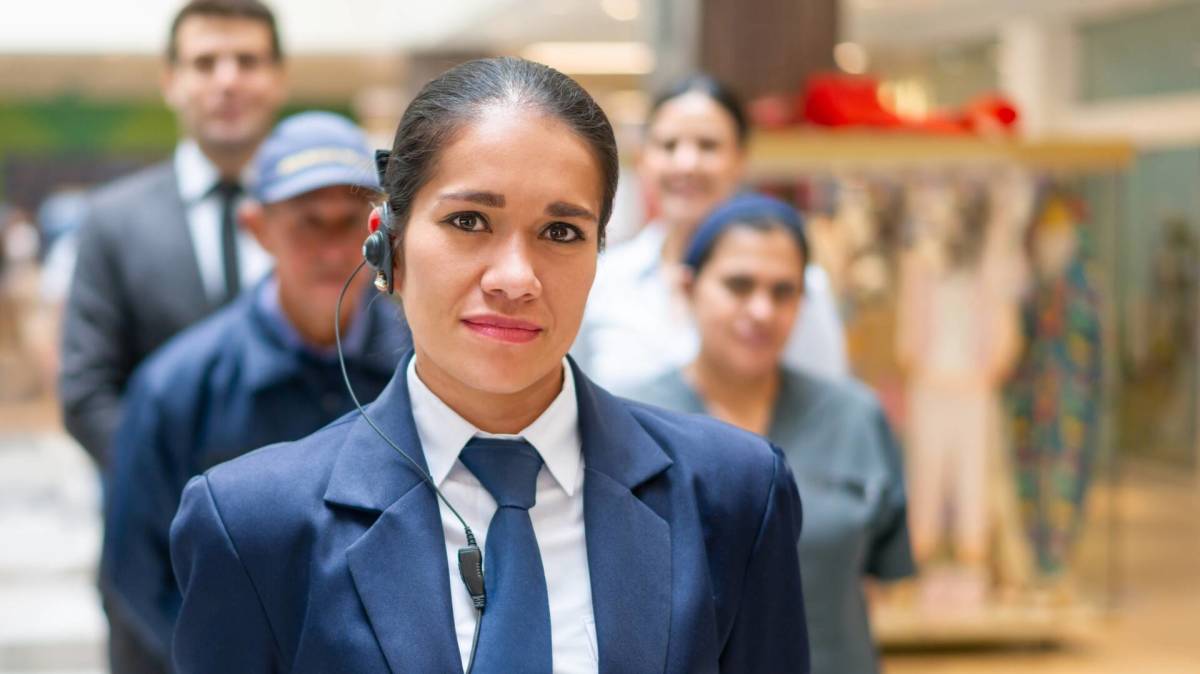While privacy remains a key issue for many Americans, a majority seem willing to give it up to make retail stores safer and cut down on retail theft.
A poll of over 2,500 American adults found over 70% are comfortable with, or indifferent about, the growing prevalence of body-worn cameras beyond law enforcement.
“The research, commissioned by tech firm Halos, revealed favorable consumer sentiment about the role bodycams play in increasing people’s sense of safety when worn by staff in places like stores, on mass transit and at event venues like stadiums. It also found most people believe bodycams help deter disorderly conduct,” according to the company.
Body cameras have become increasingly common in retail. Walmart ran a pilot study using the technology last year; TJ Maxx, Target, and Dollar General have all used it as well.

Image source: Getty Images
Retailers that are using or testing body-worn cameras:
- Walmart: Piloted in Denton, TX (Dec. 2024), now spotted in select checkout areas in Florida and other markets (2025). Used for employee safety and de-escalation, along with theft monitoring.
- TJX Companies (TJ Maxx, Marshalls, HomeGoods): Deployed for loss prevention associates; reported success in deterring theft and calming conflicts.
- Dollar General: Testing bodycams in some stores, mainly in high-risk locations for safety and theft deterrence.
- Target: Evaluating use of cameras for frontline employees and security staff as part of wider anti-theft and safety measures.
- Kroger: Piloting cameras with security/loss prevention teams in select grocery stores.
- 7-Eleven franchisees: Some have equipped employees with body-worn cameras in high-crime areas.
Most Americans are comfortable with this tech
“There’s been a lot of conversation about how bodycams impact businesses and employees, but we wanted to understand how the public feels about seeing them in everyday settings,” said Halos CEO Alan Ring.
The Halos study showed that most Americans are supportive of this technology.
“Our study found the majority don’t mind that bodycams may be capturing their interactions in a store, on a train or at a concert because this era of over-sharing on social media and hyperconnectivity has sort of made that the expectation. It goes to show how bodycams are quickly becoming an accepted part of the public safety toolkit.”
Key survey results on bodycam use:
- Over 70% are comfortable with, or indifferent about, the growing prevalence of body-worn cameras.
- The majority of respondents (62%) agreed the use of body-worn cameras by frontline staff helps to deter unfavorable behavior like aggression toward employees or other patrons and theft.
- Forty-four percent of those polled said they’d think twice about their own behavior if they knew staff in a given setting were wearing cameras.
“More than one-third (35%) of respondents are researching body-worn cameras for retail employees,” according to the National Retail Federation (NRF).
Experts share opinions on retailers using bodycams
Not every person working in retail sees the benefit of these cameras,
One TJ Maxx worker in a Florida store told WESH that the body cameras were “just for show” and their presence did not make employees feel any safer.
“It feels like the implementation of this program with the cameras isn’t meant to achieve anything, but rather just something the company can point to” to say it is improving security, the worker, whose name was redacted, shared.
A study by Professor Adrian Beck “found that 66%-80% of staff felt safer because of the introduction of BWCs. This has helped retailers feel more confident when it comes to intervening during suspicious situations,” according to an Axon report.
Two experts also shared a warning on the use of bodycams with WESH.
“I would be really cautious about putting underpaid, undertrained people in these positions,” said Thaddeus Johnson, a senior research fellow at the Council on Criminal Justice. “We have to be really careful when we talk about body-worn cameras.”
Stuart Appelbaum, the president of the Retail, Wholesale and Department Store Union, said, “It’s not enough to just slap a camera on somebody and say it’s an alternative to doing more significant safety measures.”
NRF urges caution
“Implementing body-worn cameras requires careful consideration, as challenges involving privacy, comfortability and overall scrutiny of the technology may exist from both employees and customers. Clear written policy development on its use, how data is stored, who accesses data and the overall purpose of body-worn cameras should be established before implementation,” according to an NRF report.
The trade association also makes the following points:
- From the customer’s perspective, consider cameras with front-facing screens and lights that visibly indicate recording.
- Adhere to any state or local laws involving recording, privacy regulations, or data storage.
- Post appropriate signage to indicate the use of body-worn cameras, highlighting when and how cameras are activated and how video is captured and stored.
Related: American-made athletic clothing brand liquidating, no bankruptcy
#Walmart #Target #TJX #bold #shoplifting #retail #theft #tech